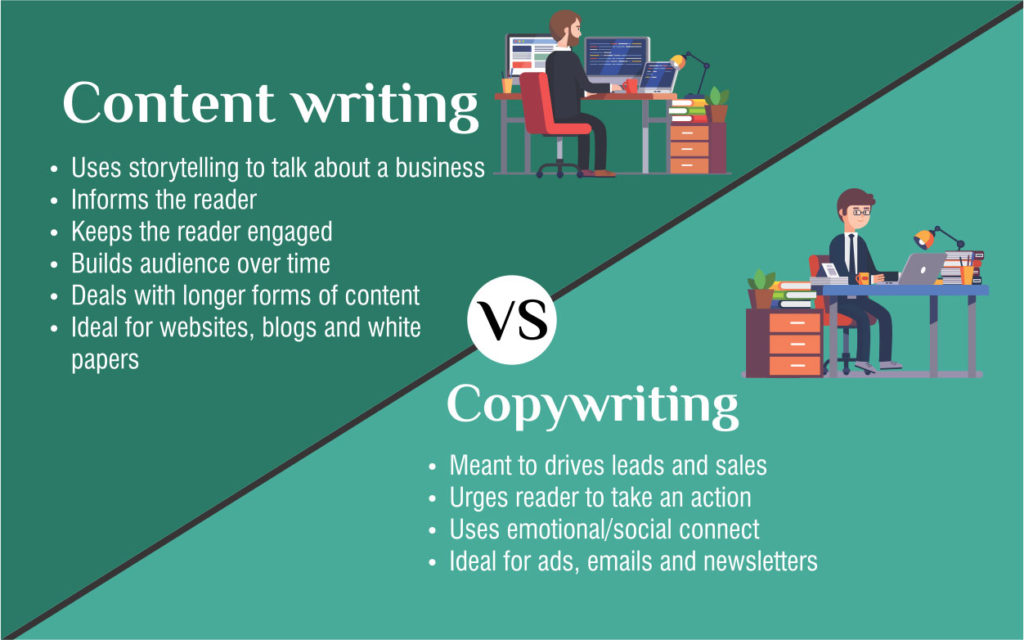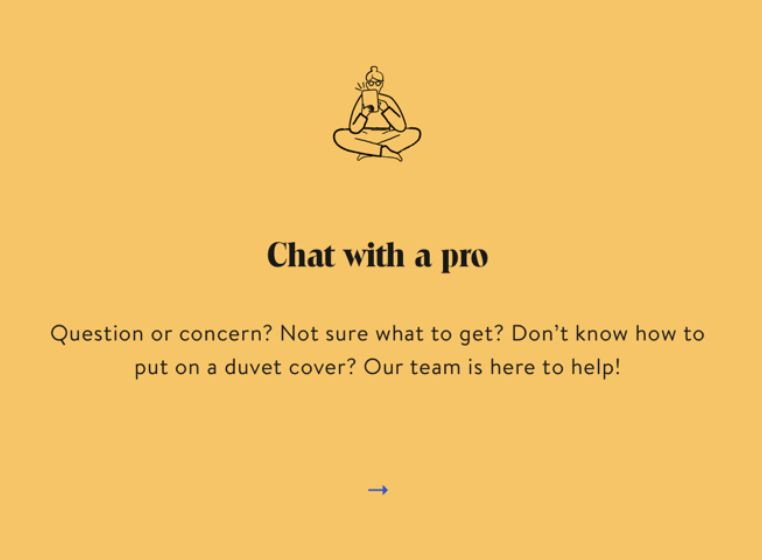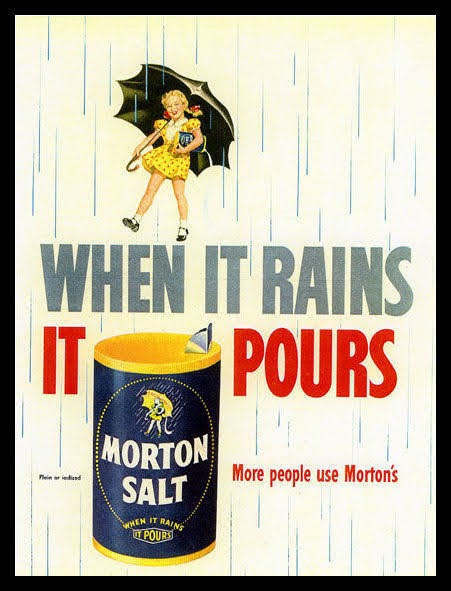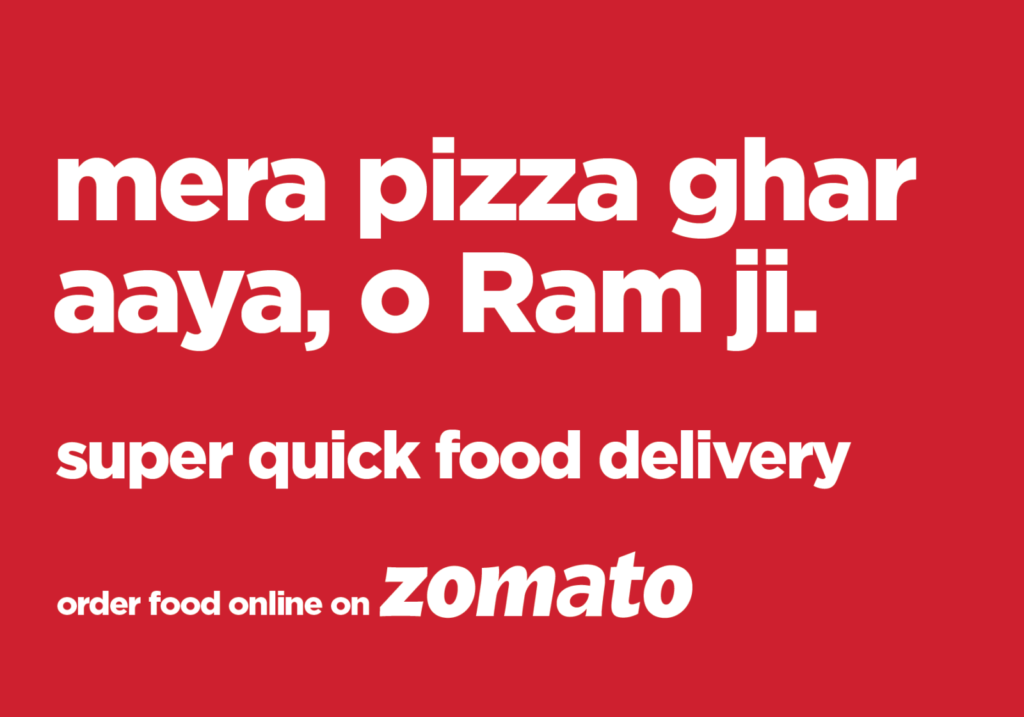
Table of Contents
- Platforms Where Copywriting Is Needed
- Why Copywriting and Content Writing Are Not the Same
- What Does a Copywriter Do?
- 10 Crucial Copywriting Tips
- The Role of SEO in Copywriting
- Lessons You Should Learn to be a Good Copywriter
- How Copywriting Plays a Vital Role in Growing Businesses
- 5 Examples of Good Copywriting
- Key Takeaways
- FAQs
A sales team contacts clients one at a time, but a copywriter reaches them all at once via billboards, magazine advertisements, sales letters, blog postings, and other channels.
Therefore, we wanted to create a copywriting guide that would offer you an edge when writing online and offline copy, because good copy helps you convert more readers into purchasers.
Design, content marketing, SEO, and growth hacking are all part of a comprehensive digital marketing plan, but copywriting is the glue that ties it all together. This copywriting handbook
is an important read, especially for newbies.
The following is a basic definition of copywriting:
The process of developing and releasing reader-focused text that teaches people about your company and its offerings is known as copywriting. In simpler words, it is a form of persuasive writing that is mainly done to get people to take action, i.e., make a purchase. Copywriting is more effective than outbound advertising strategies, and is also focused on brand awareness.
Platforms Where Copywriting Is Needed
There are various platforms where copywriting is needed; they include:
- Offline advertisements: newspapers, radio, television, flyers, and periodicals
- Online advertisements: search engines, emails, websites, and social media
- Online content: articles, blogs, and website material
Copywriting is all about providing value to the reader and encouraging them to take action. It’s pointless to write something well if no one reads it. So, before you start writing, be sure you’re writing about something relevant. Research is equally important for ensuring that your ad copy resonates with your target audience and provides them with value.
Why Copywriting and Content Writing Are Not the Same

The development of written material to educate or entertain readers is known as content writing. It may help with sales, but that isn’t its primary goal. By providing high-quality and valuable material, content writers wish to educate, inform, or entertain the audience. Here are a few factors that distinguish copywriting from content writing.
1. Purpose
The primary difference between content writing and copywriting is the aim. Copywriting is intended to convince, whereas content writing is designed to educate or entertain.
The majority of advertising text employs copywriting to persuade people to take action, whether on Google, Facebook, or elsewhere on the internet. The majority of the organic website content, on the other hand, is written to provide nonprofit value to users by way of education and pleasure.
2. Emotions
Another distinction between content writing and copywriting is that copywriting frequently elicits a strong emotional reaction, whereas the intensity may not be as much in content writing. For example, a consumer’s fear of missing out (FOMO) may drive them to purchase a product to avoid losing out on its advantages.

FOMO is only one of the numerous emotions that copywriters routinely use to urge people to take action. Security, pride, comfort, fear, a sense of belonging, and rapid fulfillment are among the others.
3. Length
Content writers produce lengthier content, as they focus on informing or educating the reader. You might be able to persuade readers to act with just one or two phrases, but educating or amusing them will almost certainly require more. For content writing, you may need anything from 500 to 2,500 words (or more), depending on the topic.
Short bits of content can still be informative or amusing, but content writing focuses on nonprofit value. A piece of information that is too brief will not provide readers with much importance.
Ad copy, on the other hand, works by conveying the brand’s agenda in a rather crisp manner. In the world of advertising, short and effective copy is considered one of the most important tools for brand awareness as well as conversions.
4. Grammar
While you should avoid language mistakes in your content development efforts, content writing is critical. Readers’ ideas are disrupted by grammar problems, which force them to come to a halt. Readers will likely pause to comprehend a grammar issue, whether it’s a missing period at the end of a phrase or a dangling modifier. Some readers may then decide not to read the rest of the information.

Content writing needs impeccable grammar and language. To be effective, copywriting does not need immaculate grammar. Instead of using a grammatically acceptable statement, you might be able to persuade more readers to take action by employing an unfinished sentence. Many internet advertising platforms usually limit the number of words you may include in a text ad. Therefore, you may need to compress your text ad by deleting extraneous words or punctuations. Just remember to make your text adverts engaging and comprehensible.
What Does a Copywriter Do?
- A copywriter mainly writes persuasive content to sell items and generate organic traffic to a company’s website.
- They create product descriptions, email content, banner advertising text, and text for newsletters and social media campaigns.
- Usually, ad copy is complemented by visuals, so that readers may review the content quickly and take the appropriate action.
- Copywriters do everything from research and editing to brainstorming ideas and designing storyboards to ensure that the material engages and converts customers.
10 Crucial Copywriting Tips
Below, we discuss a few things you need to know about if you want to build a career as a copywriter.
1. Grammatical knowledge
Being a successful copywriter necessitates being grammatically sound. Therefore, your final goal may be jeopardized if your copy has errors in spelling and punctuation. When people see mistakes in copy, especially short-form content, they may form a negative impression of the brand, product, or service.

No one is perfect. You’ll make a few mistakes if you write a lot of words every week. One or two grammar issues buried in a 3,000-word blog post can be disregarded. A spelling error on a homepage or in a sales email, on the other hand, is significantly more severe.
Therefore, do not succumb to the temptation to speed through this procedure. If needed, use a text editor and proofreading software to modify your text. And make sure you double-check everything before submitting.
2. Persuasion techniques
Good copy persuades. Period. As a copywriter, you must write in a way that the reader feels compelled to act.
For instance, you’re not selling smartwatches; instead, you’re selling fitness. You’re not selling insurance; instead, you’re selling protection. Determine the emotions you want the reader to experience and select the most remarkable word combination to trigger those sentiments.

3. Getting to know your audience
You must also know who will be reading your work. A consumer that lands on your homepage may not be familiar with your brand, but an email subscriber already knows who you are. Therefore, if you’re opting for email copywriting, you don’t have to reintroduce yourself or provide your brand story over and over again. That’s a waste of excellent material, and the monotony will quickly drive your readers away.
Create copy that is attractive to your target audience instead. Don’t make an effort to impress everyone. A firm that sells inflatables and toy cars does not have the same target market as one that sells corporate software as a service (SaaS). Recognize the difference and make the necessary adjustments.
4. Avoid jargon
Remove any industry-specific terms from your text when writing for a B2C audience.
Your language should be such that a layperson understands each word and interprets the content just in the way you desire.
Slang and acronyms should also be avoided at all costs. Slang is often seen as unprofessional (unless it’s part of your brand image), and you can’t assume that everyone understands the acronyms you use. Great copywriters can take a complicated subject and make it understandable even to a fifth-grader.
5. Compelling CTAs
Advertising your brand, products, or services is only half of the battle. You must also include a clear call to action (CTA) for your viewers. What is the ultimate purpose of your copy? Anyone reading it should be able to figure it out.

Whether you want people to buy anything or connect with you, make sure your message guides them clearly. Consumers should not feel confused about the next steps.
6. SEO knowledge
When you’re writing any type of content for the web, you need to optimize it for search engines to make it discoverable.
The purpose of SEO is to make sure your content shows up on search engine results pages (SERP), when people search for it. Therefore, use keywords that will assist your content in ranking. Keywords are only one of many factors that go into creating high-ranking content; the others include meta tags, interlinking, site speed, and more.
7. Conciseness

Excellent copy is brief and to the point. You must be able to communicate your topic in the fewest possible terms. Use concise sentences and paragraphs, and avoid fluff or filler content. Learn how to write compelling copy. Long sentences and verbose language make it hard for the reader to comprehend your message.
8. Enthralling lead
Your copy can grab the interest of your readers, whether it’s with a headline, subheading, subject line, or introductory sentence. You may utilize action words to get your readers’ attention. For example, start with a statistic, a number, or an interesting fact.
Here’s another example of a creative lead:

If your lead fails to pique your readers’ interest, the remainder of your material is doomed.
9. Write channel-specific copy
You won’t be able to recycle or reuse every piece of text you generate across all marketing platforms. Even if you’re advertising the same product or campaign, each distribution channel requires a distinct approach.

Depending on the channel, you should consider the tone, style, and nature of your ad copy. Remember, content usually lengthens when you move further down the sales funnel.
While this isn’t a hard-and-fast rule, it does apply to the vast majority of situations. A brand awareness billboard, for example, will have material that is only a few words long. Similarly, your landing page’s copy will be lengthier than that of your homepage.
Therefore, it isn’t wise to write copy without thinking about how it will be perceived. Always keep in mind the platform for which you’re writing and make the necessary modifications.
10. Complete comprehension of the offer
Many inexperienced copywriters make the mistake of diving immediately into the writing process. However, it would be best if you waited until you thoroughly understood the product or service before you started writing.
Assume you’re a freelance copywriter hired by a corporation to create landing page text. It might take hours or even days before you consider writing anything, depending on the complexity of the offering. It’s hard to communicate a message to an audience if you don’t know what you’re talking about.
The Role of SEO in Copywriting
SEO copywriting aids in the optimization of a website’s search engine rankings. An SEO copywriter often writes material to complement the SEO specialist’s approach. To appeal to—and persuade—readers, an SEO copywriter must strike a balance between writing for search engines and writing for humans. Here are a few factors of SEO copywriting.
1. Identify search trends
Copywriters study the terms and phrases used by internet users while looking for information on a given subject. To improve SEO results, the copywriter incorporates keywords and phrases that match the user’s intent.
2. Working knowledge of SEO
They analyze data to determine what the business target customer is searching for, how the organization can react to the customer’s demands, and how linking to social media may boost a ranking. They create SEO content to meet these needs.
3. Digital content creation
An SEO copywriter creates optimized text for various platforms, including websites, blogs, social media, white papers, ebooks, e-commerce sites, and more. Therefore, they need to be well-versed with the digital vocabulary, and should have a basic idea about digital publishing works.
Lessons You Should Learn to be a Good Copywriter
Here are some additional tips to help you succeed as a copywriting professional.
- Benefits, not features, should be the focus of your pitch.
- When feasible, use newsjacking to your advantage. This quickly grabs the attention of the users.
- Whenever possible, tell a tale. This will keep the reader engaged until the end of your piece.
- Use the phrase “you” rather than “we” or “I.” Everything revolves around the client.
- Make your statement as precise and concise as possible.
- Assist your readers in identifying an issue and then help them resolve it.
- Make use of everyday language. For example, write as though you’re conversing with a friend.
- Remove words that are weak and that don’t provide any actual value.
- Keep track of ad copy, emails, and any other content that you enjoy or perform well. You may then resort to them if you’re having trouble coming up with content.
- Pose questions to which your readers can respond affirmatively.
- As much as possible, use an active voice. You come off as weak when you speak in a passive voice.
- What’s in it for the readers should be highlighted.
- Use powerful verbs like “create,” “plan,” “change,” and more.
- To make your text as laser-focused as possible, set a word count.
- Find information gaps in internet communities like Quora or Reddit and generate material to fill them.
- Use bucket brigades (phrases that encourage users to stay on the site) to encourage your viewers to read the entire article.
- Edit until you’re satisfied that the copy is flawless.
- Expect to fail and learn from your mistakes.
Last but not least, constantly strive to improve as a writer. In the realm of writing, there is always something new to learn.
How Copywriting Plays a Vital Role in Growing Businesses
A company website necessitates the creation of various types of content. The necessity for copywriting is constant, whether it’s for a website or social media postings, company commercials, or blogs. Hiring expert copywriting services is one way to ensure a long-term solution.
If your material is ambiguous, shoddy, full of big words, and doesn’t consider the reader, the person reading it will be unable to connect with you, and will have little interest in your brand. You’ve lost their trust, and they’re unlikely to buy from you again. On the other hand, well-written copy quickly resonates with your target audience because it addresses the most important issues they have. Here are a few factors highlighting why copywriting is crucial to businesses.
1. To build a solid brand image
A strong brand image boosts revenues. It has a direct impact on consumers’ purchasing decisions. And copywriting is crucial in projecting your brand’s image to the public.
Poor website material that is riddled with errors might reflect poorly on your brand. Excellent copy, on the other hand, helps develop the brand image you’ve always aimed for.
The importance of copywriting in developing a solid marketing strategy is sometimes ignored. Strong copy isn’t just about one campaign or ad; it’s about leaving a lasting impression on your audience. It’s the equivalent of being the most charming guest at a dinner party. You don’t want to hang out with someone who is always talking about themselves and attempting to appear intelligent. So, instead, the most famous person in the room is interested in you and has fascinating tales to share. That’s how good copy works.
2. To create value-driven content
A value-driven content strategy not only builds customer trust in your business but also establishes the groundwork for a long-term connection between your company and your target audience. How can your online marketing strategy achieve its objectives if your website lacks quality content?
Information has never been easier to get since the internet’s inception. Every day, we consume a lot of stuff, whether it’s a Netflix show we want to watch or a YouTube commercial we can’t avoid. As a marketer, this increases the number of touchpoints available to interact with your audience while also increasing the competition for their attention. That is when the value of well-done copywriting comes into play. It can help you strike the right balance between relatability and information.
Because internet visitors’ attention spans are so short these days, your website copy must be detailed, informative, and purposeful, all at the same time. Your social media platforms are the finest places to communicate and interact with your customers as a company. They’re online to be amused; therefore, what you post significantly influences their purchasing decisions.
3. To better communicate with the audience
If you don’t know how to communicate in the language of your target audience, your advertising approach will fall short.
And successful copywriting, whether you do it yourself or hire professionals, fundamentally speaks the language of your target audience. Sound copywriting not only demonstrates that you understand your target audience, but also aids in emphasizing your company’s assets most innovatively and appealingly. The better your writing, the more likely it is for your audience to be engaged.
Remember, copywriting entails more than simply a few words or lines describing the nature of a product or company. It expresses your company’s beliefs, leaves an indelible impression on the audience, and encourages people to use your services or goods.
5 Examples of Good Copywriting
Here are some examples of brands doing copywriting right.
1. Morton Salt

Morton Salt began adding an anti-caking agent to avoid clumping in 1911, making it the “first free-flowing salt.” The Morton Salt Girl and the tagline “When It Rains It Pours” were developed three years later. The slogan is the company’s own take on an old proverb, which has a negative connotation (it means, when troubles come, they all come together.)
However, what Morton Salt’s slogan meant was that salt stays dry and is easily poured even when it’s humid outside. An ace example of witty ad copy, if you ask us.
2. Rajasthan Tourism

This is an example of extremely succinct and sharp copy. See it the way you like: camels or the famous Rajputana mustache. The smart copy under the word “Rajasthan” takes the cake. In just a short sentence, they managed to tell the reader they’ll always be in for a surprise in Rajasthan, as there’s plenty to see here.
3. Nike

In 2018, Nike commemorated the 30th anniversary of their brief but memorable tagline—Just Do It—with a new one. The ad featured former National Football League (NFL) quarterback Colin Kaepernick and the slogan, “Believe in something, even if it means putting everything on the line.”
4. Zomato India

Zomato is known for brewing fun and catchy copy that instantly appeals to the users. Their play on famous Indian Bollywood songs and connecting those messages to the brand voice resulted in a campaign Indians won’t forget too soon.
5. KFC UK

In its mea culpa for the 2018 chicken scarcity, KFC turned lemons into lemonade with only three letters: FCK. This ad worked because the company not only owned up to the mistake, but they did so with humor and tact. Therefore, it helped avert the crisis and restored consumers’ trust in the brand.
Copywriting is critical for your business since it offers your brand a voice to communicate with your customers. It’s the voice you use to enlighten and engage with your consumers on a deeper level, telling them that you understand their requirements and have what it takes to provide them with what they want. It is one of the most effective techniques for increasing sales, gaining consumer confidence, and establishing long-term consumer trust in your company.
Because e-commerce is booming these days, the importance of this crucial relationship between text and the internet firm is undeniably essential. Now, a superb copywriter’s work may transform the fortunes of a small internet service into a thriving sales empire. Companies that understand the value of excellent copywriting are better able to form genuine bonds with their customers. These companies are always one step ahead of the competition.
Key Takeaways
- Copywriting is the process of creating and distributing reader-focused text that informs people about your company and its products.
- The goal of copywriting is to persuade, whereas the goal of content writing is to educate or entertain.
- An SEO copywriter generates text that contributes to the SEO efforts of a website.
- Copywriting does not require perfect grammar to be effective. You might be able to persuade more readers to take action by utilizing an incomplete sentence instead of a grammatically correct assertion.
- If your material is confusing, full of large words, and doesn’t take the reader into account, the person reading it will be unable to connect with you.
FAQs
The only way to improve your copywriting skills is to sit down and write. Take what you’ve studied so far and put it into practice. Attempt to write your first piece of copy. Then, to attract someone to join an email list, start by crafting short-form material, such as an email message or a squeeze page.
Even for those who are naturally gifted, copywriting is difficult. It can be formulaic at times. It is not always easy to condense all you want to say in a few words, and that, too, as effectively as possible.
Copywriters create engaging content such as slogans and catchphrases for a variety of promotional mediums, including websites, print advertisements, and catalogs. Their responsibilities include keyword research, writing engaging written material, and reviewing their work for correctness and quality. They also write for radio and television ads.
A bachelor’s degree in English, journalism, or a similar field is usually required of copywriters. However, copywriters with an appealing work portfolio and education relevant to their niche may be hired by some businesses. Software copywriters, for example, may hold a degree in computer science or engineering.
Copywriters need to have the technical and strategic understanding needed to write effectively for search engines.
It’s not unusual to encounter writers who make six figures from their writing enterprises each year. However, despite the huge demand, don’t mistake this for a get-rich-quick scam. Long hours of focused effort and particular marketing and business abilities are required to have a successful copywriting career.
Latest Blogs
Explore how Google’s 2025 AI search updates triggered ranking chaos. Learn actionable strategies to adapt your SEO for AI Overviews, zero-click searches, and SERP volatility. Stay ahead now.
Learn how to rank on AI search engines like ChatGPT, Perplexity, and Gemini by optimizing your content for authority, structure, and relevance. Stay ahead in AI-driven search with this strategic guide.
Explore the best healthcare SEO services for your medical practice. Improve online visibility and effectively reach more patients in need of your services.
Get your hands on the latest news!
Similar Posts

B2C Marketing
5 mins read
Top Choices for Best Content Marketing Services in B2B Industries

Artificial Intelligence
5 mins read
How A Lead Generation Specialist Can Use AI-Powered Content Funnels to Drive Conversions

Artificial Intelligence
4 mins read